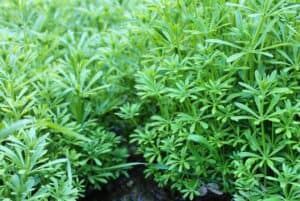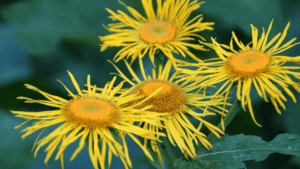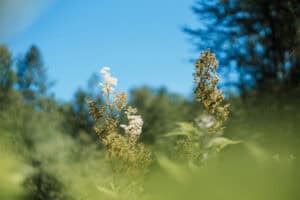I got a great e-mail the other day from someone who was asking me how to have a deeper connection with herbal medicines… but from a non-spiritual perspective!
This was such an awesome question that I decided the answer would make a much better video than e-mail, and I thought I’d share it with everyone.
Oftentimes when I speak of building and developing relationships with plants, I talk about it more from a spiritual perspective: sitting with plants, making offerings and prayers, connecting with them through our senses, learning their signatures and symbolic language etc. But I’ve never really spoken on the subject from a more practical and… well non-spiritual perspective.
So I was really excited to think this through a little bit more and share some of the critical things that I think are necessary skills that all herbalists need to develop in order to really know their herbal remedies, not just intellectually, but experientially.
There was a great quote from this e-mail, “You seem regard your relationship with herbs as something more of a kinship than seeing them as tools of the trade. I have never been a spiritual sort, and I wouldn’t know how to meditate or find inner peace if someone drew me a roadmap and volunteered to drive me to it. As odd as it may sound, I would like to gain that sort of relationship with herbs, except I do not know how.”
Your relationship with herbs is something more of a kinship than seeing them as tools of the trade.
WOW!! That statement struck me profoundly.
That right there is what I think differentiates a true herbalist from someone who just uses herbs. A lot of people out there think of herbs as natural alternatives to drugs, or that they are simply “good for” certain diseases, symptoms or conditions. “Got a cold? Take Echinacea. Got inflammation? Take some Turmeric. Need to calm down and get some rest? Here’s some Valerian.
That is more of the “tools of the trade” kind of thinking, which is ultimately at the root of allopathic herbalism.
But the true herbalist doesn’t think about plants in this way.
No, the true herbalist has a deeper level of connection to the remedies they work with. They aren’t just “armchair herbalists” who knows their plants intellectually and memorizes their properties.
Rather, they have an intimate relationship with their plants. Sure this may be a spiritual thing for many, but it doesn’t have to be. We can have a different mode of learning plants that goes beyond our intellect, because it is founded upon experience.
I mean it’s one thing to read 100 books about India and their culture, food, traditions, etc. But you don’t really know India until you get on the plane and get over there!
The same is true with plants. You can read all you want, listen to 100 lectures, intellectually know everything there is to know about a plant. But you don’t really know the plant itself, until your learning becomes experiential, tactile, grounded in your body.
Until you know it by heart.
Isn’t it interesting that we have that phrase in the English language?
It’s one thing to memorize. With that, you have knowledge. But it’s a total other thing to know something by heart. Which to me, is the hallmark of wisdom. And the only way to turn the knowledge in our minds into wisdom within the heart, is through our direct experience.
So with that, the 5 primary ways to deepen in your connection with plants are:
- Direct Experience: By direct experience, I am referring to actually seeing the plant live, in its natural habitat. To engage in direct sensory awareness of the plant throughout its entire life cycle is one of the greatest gifts we can give ourselves as herbalists- for we see its Life and all of its ways of expressing itself. Taking time to simply be with your herbs is one of the greatest ways to deepen in your connection with them, because well after all- you’re connecting with it! Wildcrafting is another great way to do this, but only if you feel comfortable and confident to do so (and you are 100% sure on your ID!!)
- Medicine Making: I always say the best medicines are the ones you make yourself, simply by virtue that you have a relationship to the plant you are extracting. Whether that’s simple infusions or decoctions, to tinctures or even going advanced and making spagyrics out of them, preparing your own medicines is a great way to develop your relationship to plants and get to know them.
- Medicine Taking: I always say “you gotta put your medicine where your mouth is!!” You can read all you want about Oregon Grape being bitter. But you don’t really know that until you taste that bitter on your tongue! Taking a plant is where it all comes together. You learn to develop a physiological sensitivity and actually feel how that plant is affecting your body. And if you really want to go for it, you can sit in meditation when you take a plant and connect to it through your heart, mind and spirit too. But this is supposed to be a non-spiritual approach!! Drink the tea, take the tincture, take a bath with it… completely immerse yourself in the plant in as many ways as you can. This is probably one of the best ways to deepen in your connection with plants.
- Administering: You also learn a lot about plants by giving them to people and seeing what they do. Obviously you want to do this with good ethics, but if someone asks you for help and you know a plant that might help them, by all means give it to them! If it works, then great, you really learned something. And if it didn’t work, that’s great too because you’ll learn something from it… well…. I mean it’s not great it didn’t help them, but from the perspective of your learning it is a critical experience. Too many herbalists are afraid of failing and the herbs they give not working that they never get started. But if you really get down to it, at some point in time you’ll a remedy to someone that won’t work. But it teaches you something and you through that teaching you understand that plant in more depth- when to give, and sometimes more importantly, when not too.
- Study, Study, Study! Paul Bergner always says “if you’re going to reinvent the wheel, it’ll probably be round.” All of your herbal knowledge doesn’t need to be based on your own direct experience with plants. We have thousands of years and cultures from around the world to learn from in our modern day of herbal medicine- so by all means learn from them all! My approach to studying a plant is to look at it from all possible angles- chemically, energetically, physiologically, psychologically, and spiritually. I look at it from the Chinese lens, the Ayurvedic perspective, medical astrology, alchemy, folk wisdom, Galenic medicine, etc. Each fills in a piece of the puzzle of really understanding that plant with depth and precision.
If anything is a “tool of the trade,” I would say these 5 steps above are it! These are critical skills every herbalist must develop in order to fully understand the potency and power of the remedies they work with. It creates more balance in your knowledge of plant medicines, by ultimately helping to bring that knowledge down into your heart, where it may blossom into the flower of wisdom.







